The views expressed in our content reflect individual perspectives and do not represent the official views of the Baha'i Faith.
It is better and more satisfactory to acquit a thousand guilty persons than to put a single innocent one to death. – Maimonides
Most people approve of capital punishment, but most people wouldn’t do the hangman’s job. – George Orwell
I have reached the conviction that the abolition of the death penalty is desirable. Reasons: 1) Irreparability in the event of an error of justice, 2) Detrimental moral influence of the execution procedure on those who, whether directly or indirectly, have to do with the procedure. – Albert Einstein
Have you ever seen a crime occur, right at the moment it happened?
If you have, the police and the courts call you an eyewitness. Eyewitness testimony, one of the highest standards of proof in a court of law, carries a great deal of weight in the conviction of criminals. But here’s the problem: eyewitness testimony is inaccurate or even dead wrong much of the time.
Multiple studies have borne this out. Probably the best-known, conducted by the Benjamin Cardozo School of Law in New York City in the early 1990s, found that incorrect identification by eyewitnesses played a major role in over 70% of wrongful convictions. The study proved that eyewitness testimony, once accepted as the gold standard in criminal cases, was often highly unreliable.
I learned this lesson personally once. Standing on a street corner waiting to cross at the crosswalk, I saw a violent collision between a police cruiser and another car. The police cruiser had sounded its siren, but only a second or so before it ran a red light and collided with the other car, which was going through the intersection legally on a green light.
I helped two young women out of the other car—both were injured, but not severely—before the paramedics arrived. The driver of the police car, in his police uniform, didn’t even get out of his car—he just sat in the driver’s seat and waited for the ambulance to arrive.
Many more police officers soon arrived on the scene, and interviewed me as one of the eyewitnesses. I told them what I had seen—that the officer driving the police car had run the red light, failed to give sufficient warning with his siren, and was at fault in the collision. To make a long story much shorter, I wound up in court a few months later to testify as an eyewitness. In the courtroom, one of the attorneys played a videotape from a nearby gas station’s security camera which clearly showed the accident—and that showed the police car entering the intersection after the light had turned green. The other car, the videotape proved, actually ran the red light. Thankfully, after that evidence, the judge didn’t need to hear my mistaken “eyewitness” account.
I learned a lesson that day about eyewitness testimony, and how unreliable it can be. Why was my own firsthand recollection of the accident so wrong? Probably because I looked up at the traffic light after the accident actually occurred, and thought I had seen them simultaneously when I really hadn’t. We can’t always rely on our senses, as the Baha’i teachings point out, to tell us the truth:
Briefly, there are many instances and evidences which disprove the assertion that tangibilities and sense impressions are certainties, for the senses are misleading and often mistaken. How, then, can we rightly declare that they prove reality when the standard or criterion itself is defective? – Abdu’l-Baha, The Promulgation of Universal Peace, p. 356.
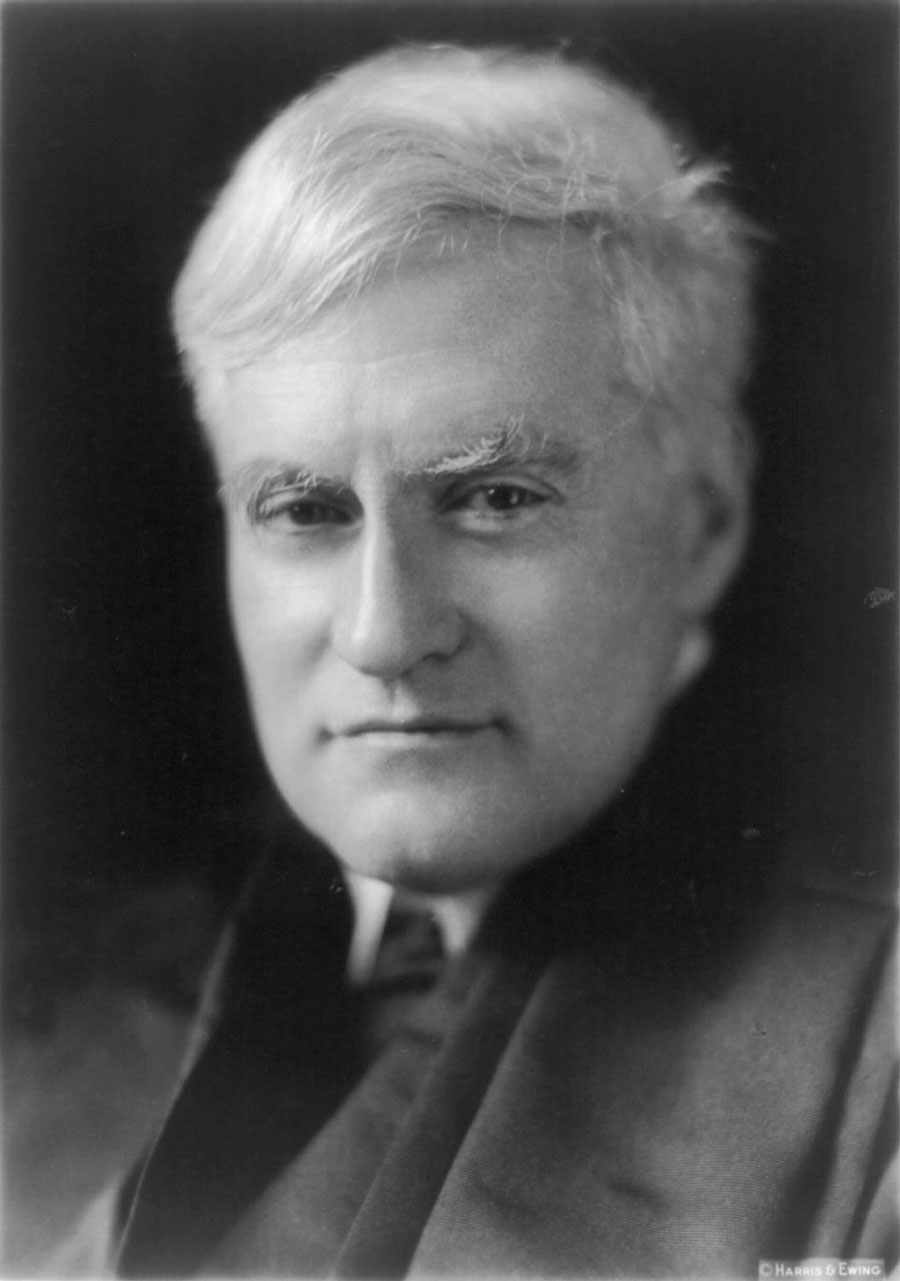
Benjamin Cardozo
The Benjamin Cardozo eyewitness reliability study, conducted in conjunction with the United States Senate and the U.S. Department of Justice, resulted in the establishment of the non-profit organization called The Innocence Project. The Innocence Project, since its founding in 1992, has used DNA evidence to exonerate 340 people wrongly convicted of felonies, including murder, in the American court system. Twenty of those people were originally sentenced to death, and several spent decades on Death Row before their convictions were reversed.
Guess what? The overwhelming majority of these 340 innocent people—70%—were black or Hispanic men. Almost all had few financial resources. Most were convicted by mistaken eyewitness testimony.
Using that information, and the record of more than 1500 wrongful-conviction exonerations in the U.S. legal system since 1989, researchers estimate that almost 5% of all people sentenced to death from 1973-2014 were innocent. Nearly 3000 inmates now occupy Death Row cells in the United States—which means that approximately 150 of them didn’t commit the crimes that resulted in their death penalty sentences.
Can you imagine being executed for a crime you never committed? That’s why Amnesty International calls the death penalty “the ultimate, irreversible denial of human rights.”
That’s also why I decided, as a voter and as a Baha’i, to cast my ballot in favor of eliminating capital punishment in California. In our imperfect legal system, the wealthy often escape justice, while minorities and the poor disproportionally suffer from wrongful conviction and harsh penalties. The fairness that justice systems all around the world strive to deliver doesn’t always occur.
Until we can reach a future condition of society where justice and fairness prevail; and where systemic racism and relative wealth or poverty don’t have such a demonstrable effect on the outcome of so many capital cases; I’ll continue to vote for life imprisonment over capital punishment. Luckily, Baha’i law leaves that option open:
Ferocity has characterized men even more than animals. The lion, tiger, bear and wolf are ferocious because of their needs. Unless they are fierce, cruel and unrelenting, they will die of starvation. The lion cannot graze; its teeth are fitted only for food of flesh. This is also true of other wild animals. Ferocity is natural to them as their means of subsistence; but human ferocity proceeds from selfishness, greed and oppression. It springs from no natural necessity. Man needlessly kills a thousand fellow creatures, becomes a hero and is glorified through centuries of posterity. A great city is destroyed in one day by a commanding general. How ignorant, how inconsistent is humankind! If a man slays another man, we brand him as a murderer and criminal and sentence him to capital punishment, but if he kills one hundred thousand men, he is a military genius, a great celebrity, a Napoleon idolized by his nation. If a man steals one dollar, he is called a thief and put into prison; if he rapes and pillages an innocent country by military invasion, he is crowned a hero. How ignorant is humankind! Ferocity does not belong to the kingdom of man. It is the province of man to confer life, not death. – Abdu’l-Baha, The Promulgation of Universal Peace, p. 102.
You May Also Like
Comments



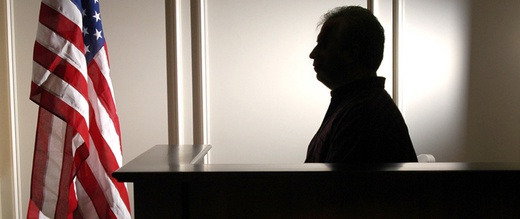



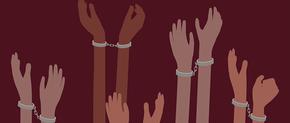

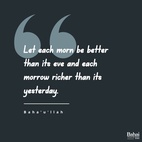

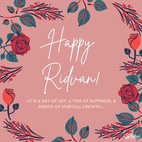
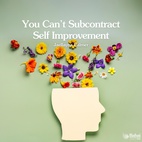
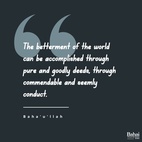
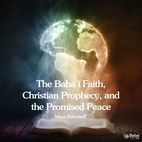
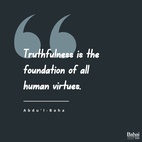

“…affirmed that while capital punishment is permitted, an alternative, ‘life imprisonment,’ has been provided ‘whereby the rigours of such a condemnation can be seriously mitigated.’ He states that ‘Baha’u’llah has given us a choice and has, therefore, left us free to use our own discretion within certain limitations…’” – Ibid., pp. 204-205.
Clearly, then, a future system of Baha’i jurisprudence offers society a choice between capital punishment and life imprisonment for the worst crimes. Which one would you vote for? ...Morally, which is right?... ..."
The law of Baha’u’llah prescribes the death penalty for murder and arson, with the alternative of life imprisonment. – The Most Holy Book, p. 204.
…should anyone deliberately take another’s life, him also shall ye put to death. … Should ye condemn the arsonist and the murderer to ...life imprisonment, it would be permissible according to the provisions of the Book. – Baha’u’llah, The Most Holy Book, pp.